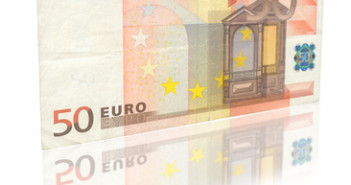After a strong rally this week, the EUR/USD hit a wall and lost ground. The markets are showing frustration over the continuing uncertainty over a Spanish bailout, and there is no indication out of the EU Summit that any decisions will be taken in this regard. Euro-zone Current Account was a disappointment, falling well below the market estimate. In the US, there was more mixed data as Unemployment Claims were up sharply, while the Philly Fed Manufacturing Index posted its best reading since April. Today’s highlight is US Existing Home Sales.
Here’s an update about technical lines, fundamental indicators and sentiment regarding EUR/USD.
EUR/USD Technical
- Asian session: Euro/dollar was trading around 1.3050. The pair has edged down in the European session.
- Current range: 1.30 to 1.3060.
Further levels in both directions:Â Â 
- Below: 1.30, 1.2960, 1.29, 1.2814, 1.2750, 1.2670, 1.2624 and 1.2587.
- Above: 1.3060, 1.3105, 1.3170, 1.3290, 1.34, 1.3437 and 1.3480.
- 1.30 is providing support as the pair has weakened.
- 1.3060 is the next line on the upside.
Euro/dollar drops on Spanish uncertainty– click on the graph to enlarge.
EUR/USD Fundamentals
- 6:00 German PPI. Exp. 0.3%. Actual. 0.3%.
- 8:00 Euro-zone Current Account. Exp. 11.3B. Actual 8.8B.
- All Day: EU Economic Summit. Day 2 0f 2.
- 14:00 US Existing Home Sales. Exp. 4.73M. See how to trade this event with USD/JPY.
EUR/USD Sentiment
- No Breakthrough on Spain expected at EU Summit: The markets are keeping their expectations low as today’s EU Summit is unlikely to yield any dramatic breakthroughs. The leaders are working on a plan to create a Euro bank supervisor by the end of the year. This “super commissioner†would be responsible for the zone’s fiscal policy, and all Euro 6,000 banks would be covered by January 1, 2014. Greece and Spain have taken a backseat to this topic, and French President Hollande stated that aid to Spain wasn’t even discussed. The lack of progress on the Spanish bailout has soured market sentiment and put an end to this week’s rally by the euro.
- Spanish bond yields dropping: Spain’s 10-year bond yields continue to fall, after Moody’s maintained Spain’s credit rating at Baaa3, earlier this week. Although the grade is just one notch above junk status, the move came as a surprise, as many analysts were expecting a downgrade. This week’s 10-year bond auction raised 4.614 billion euros, above the expected 4.5 billion.The yield on 10-year bonds dropped to 5.45%, down from 5.67% at the previous auction. Despite the initial market enthusiasm, Moody’s decision could actually result in further market uncertainty and instability, if Spain elects to delay a request for aid until November.
- No deal for Greece: Greek PM Antonis Samaras seems to have changed his tune, after declaring earlier in the week that the Greek government and its international lenders would reach a deal on the country’s mountain of debt before the EU Economic Summit. Samaras is now saying the talks are continuing. Greece has been meeting with the European Union, European Central Bank and International Monetary Fund on a new set of spending cuts and economic reforms in exchange for the next installment of bailout funds, worth 31.5 billion euros. The talks have dragged on for months, and Greece claims it will run out of funds in November if it doesn’t receive the funds. If an agreement can be reached, it will bring some much-needed stability to the markets and to the Euro-zone.
- Positive Chinese data improves risk sentiment, bolsters euro: China can take some credit for this week’s rally by the euro, after some positive numbers from the Asian giant. The country’s trade surplus widened in September, and exports jumped 10% compared to the same period a year ago. GDP was done slightly to 7.4%, but matched the market estimate. Strong Chinese readings could indicate an improving global economy, which is bullish for currencies such as the euro, as investors are willing to take on more risk and move away from the safe-haven dollar. On the downside, the dispute between China and Japan over some contested islands continues, and trade is down between the two Asian giants. For example, Japanese auto sales to China have dropped between 35-50% in recent months.
- US economy showing improvement: Recent data out of the US points to an improving economy. The Unemployment Rate dropped to 7.8%, and retail sales, housing numbers and consumer confidence are all pointing up. This has been good news for US consumers and has given a boost to President Obama, who finds himself in a very closely contested election. However, gas prices have spiked, government debt is at record levels, and the road to recovery promises to be a long one.



